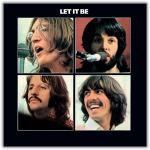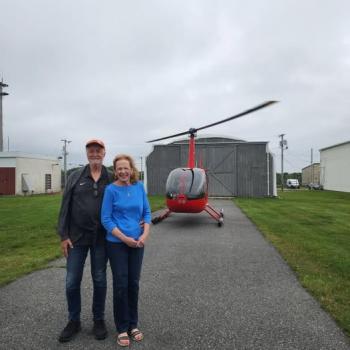The soundtrack of my youth is classical music. I was classically trained on the piano from ago four through high school. Bach, Mozart, Beethoven, Debussy, Liszt, Rachmaninoff—these were my rock stars. And at the center of my well-worn playlist was Handel’s Messiah. The “Which is the greatest work of classical music ever composed?” debate will never be settled, but I guarantee that, after six-and-a-half decades of immersion in the classical canon, Messiah is my favorite. I know every measure of it as if I was born knowing it. I fondly recall my Julliard-trained piano teacher Miss Munn accompanying the North Country Singers on the organ annually at the local Congregational church for a Messiah performance where the audience was invited to sing the choruses along with the choir.
So, when we received notice in the mail in mid-November that after a year’s Covid-caused hiatus the Rhode Island Symphony and the Providence Singers would be reinstating its annual performance of Messiah in mid-December, I mentioned casually that I’d like to experience Messiah live this season. Although I have at least three excellent performances of Messiah bookmarked on Spotify and Youtube (my favorite is the December 2019 performance from the Sydney Opera House),
it had actually been at least fifteen years since I last attended a live performance of Handel’s masterpiece. Because I have the best spouse in the world, I found an envelope with a couple of tickets to Messiah on my chair in our library room about 10 days later.
The performance was last Sunday afternoon; after getting our Moderna boosters earlier in the day, I headed downtown for the performance while Jeanne stayed home nursing a bad cold. This was a one-performance-only event, so the 2000 seat Veterans Memorial Auditorium was sold out. Three hours later, I left the venue feeling closer to the divine than I had in a long time. Messiah had worked its magic on me once again.
Of course, being a classical music geek also makes me a critic even when not invited to be one. For instance, I have a serviceable choir bass voice, but can be very judgmental concerning the soloists. In last Sunday’s performance, the tenor and mezzo-soprano were best, with a clarity and directness that mercifully were not over-trained or pretentious. The soprano had a wonderful range but had a vibrato that usually is a product of the over-training that the tenor and mezzo lacked. The baritone was, in my estimation, the weak link in the production, lacking the presence, power, and range that solos such as “Why do the nations so furiously rage?’ and “The trumpet shall sound” demand.
I am pleased to report that both the choir and the 100+ member Providence Singers chorus were flawless throughout. Handel produced several versions of his masterpiece, so I’m always interested to see which soloist will sing which solo, as well as which solos and choruses will be left out for the sake of getting in under three hours. For instance, the early solo “For Who May Abide The Day of His Coming?” was sung by the mezzo instead of the bass who usually gets it (a good thing in this performance, as it turned out), while the late mezzo/tenor duet “O Death, Where is Thy Sting?” was omitted (no great loss, imho). The only regrettable omission was the chorus “Their Sound Is Gone Out Into All Lands,” which usually follows the beautiful soprano solo “How Beautiful Are The Feet” about ninety minutes into the show. Thanks a lot for screwing up one of my favorite sections of the whole thing, folks! On well, no one’s perfect.
Enough already with the geeky critic stuff. Last Sunday afternoon, immersed in the glory of Handel’s music, I was reminded that despite the beauty of many of the solo arias, the true heart of Messiah is the choruses. Everyone familiar with the work has their favorites; this time around three particularly got to me.
- “Glory to God”—this is Handel’s version of the angels announcing the birth of Jesus to the shepherds. My seats for Sunday’s performance were in the first row of the second balcony, slightly to the right of center (fabulous seats). Handel seeks to create a sense of distance between the shepherds and the angels by setting the two lead trumpets apart from the rest of the orchestra. In Sunday’s performance, the two trumpets were no more than 15 feet away from me to the right, at the top of the stairs leading to the balcony. The effect was striking, as also was how the music at the end of the chorus gradually fades away—just as the angels did after delivering their good news.
- “Hallelujah!”—Because it is one of the most overused and abused compositions ever written, butchered by amateur choirs (some of which I have sung in) and reduced to ads for everything from automobiles to hamburgers, I must admit that the “Hallelujah Chorus” has never been one of my favorites. But when it is done right by those who know what they are doing, there’s nothing like it. Handel reported that when he was writing “Hallelujah,” “I did think I did see all Heaven before me, and the great God Himself seated on His throne, with His company of Angels.” As I stood with the capacity crowd on Sunday, as is traditionally done when “Hallelujah” is performed, chills ran up my spine, tears filled my eyes, and I had no trouble believing Handel’s report.
- “For Unto Us”—This chorus has, along with “And The Glory Of The Lord,” the first chorus in Messiah, always been my favorite. It truly captures the heart of not only the season, but of what Christians profess to believe. “Wonderful, Counsellor, the Mighty God, the Everlasting Father, the Prince of Peace.” If asked to express the heart of my faith in one piece of music, this is the one I would play. On Sunday, it was glorious. Here is a particularly good version:
I know the bass lines to all of the choruses in Messiah and have been known when in my office or at home alone to sing along with whatever recording I am listening to. I’ve often said that Handel must have been a bass himself because he wrote great bass parts. I hummed or sang along under my breath on Sunday afternoon; as it turned out, it wasn’t as much under my breath as I thought. The woman who sat next to me, as we descended the stairs from the balcony after the performance was over, said “You have a really good voice.” Taken aback, I apologized. “I’m sorry, I didn’t realize that anyone would hear me!” “Don’t apologize,” she said. “I wish you had been louder. You have a really good voice.” Made my day. My month, actually!













